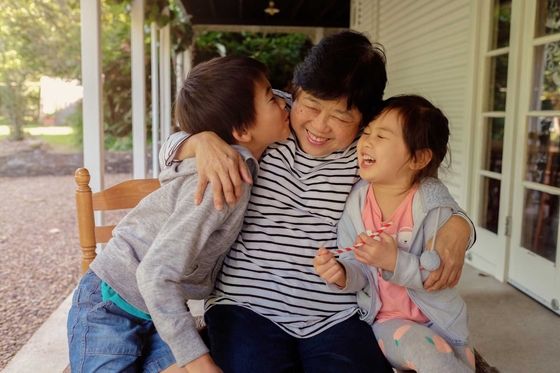
Overcoming uncertainty: Bianca Beetham’s heart story
Bianca Beetham is 24 years old and lives in Sydney. She is currently waiting for her first open-heart surgery after being diagnosed with hypertrophic cardiomyopathy five years ago.
Bianca Beetham was six when her mum was diagnosed with hypertrophic cardiomyopathy, a condition that causes the heart muscle to grow abnormally thick.
At the age of 14, Bianca discovered that she carried the same gene mutation that caused her mum’s condition – but at the time, there was nothing to suggest her heart was anything but healthy.
“I had no symptoms. I was a really active kid and into competitive dancing. My cardiologist explained everything to me in an age-appropriate way and said everything was looking good,” Bianca explains.
A sudden change of plan
At 18, an annual check-up revealed changes to Bianca’s heart structure. It was the first warning sign that her life was about to change. The following year, she was officially diagnosed with hypertrophic cardiomyopathy.
Even though Bianca was aware of her genetic risk, the diagnosis was a shock. Even more shocking was the cascade of symptoms that came with it – shortness of breath, fatigue, dizziness.
The symptoms got progressively worse over the next three years. And then one day, Bianca realised something was really wrong.
“I was walking up some stairs. I didn’t feel right – my heart was racing, I was sweaty, dizzy, I had pain in my chest on my left-hand side,” Bianca says.
It was scary, then I got numbness in my hands and feet.
She was taken to hospital where tests revealed her heart was in an abnormal rhythm. There were also significant obstructions to her heart blood flow. Her care team told her she would need a procedure to remove some of her thickened heart muscle.
“My cardiologist was really surprised by how fast my condition had progressed,” she says.
I had gone from being monitored for medication to needing open heart surgery. It was a massive transition for me to process.
Facing her fears
The thought of heart surgery was terrifying – and so was the thought her life was moving in a direction that was out of her control.
“I worry about things like what if the operation leaves me worse off?” Bianca says.
“I’m definitely mourning the life I once had.”
Luckily, Bianca is surrounded by friends, family and a medical team who are there to support her when her fears take over. Her cardiologist encourages her to talk about her condition to normalise it, while her GP has suggested creating a mental health plan that will give Bianca access to professional care.
She’s also discovered Supporting Young Hearts, a place where she can share her story and her fears with other young people who know what she’s going through.
With their help, she’ll be ready for whatever comes next on her heart journey.
“I found this incredible group of young people at the perfect time,” she says.
“I had so much to process and I realised I couldn’t do it alone.”
Advice to others
Be gentle and kind to yourself. Say: “Today I’m going to allow myself to feel sad and scared and that’s ok. I’m going to allow myself to sit in these emotions and not put pressure on myself to feel better.” If you let yourself feel these difficult feelings, you can often then think of ways to make yourself feel better.
Bianca shares her tips and advice on the Supporting Young Hearts: Heart to heart series podcast and is a member of the Supporting Young Hearts online support group. Visit us here to find out more.
You might also be interested in...

Women's heart stories
Heart disease affects women of all ages. Watch real stories from women and their journeys with heart health, recovery, and the importance of early detection.

What is cardiomyopathy?
Cardiomyopathy is a term that covers a number of conditions that affect (damage) your heart muscle. Over time the changes to your heart muscle make it harder for the heart to pump blood to the rest of your body.
.jpg?width=560&height=auto&format=pjpg&auto=webp)
Do you have a Heart Story to share?
By sharing your heart story, you can help save lives. You can tell others about the warning signs of a heart attack, the importance of a Heart Health Check, or even what it’s like to live with chronic heart disease.
Last updated26 February 2024
Last reviewed19 December 2023